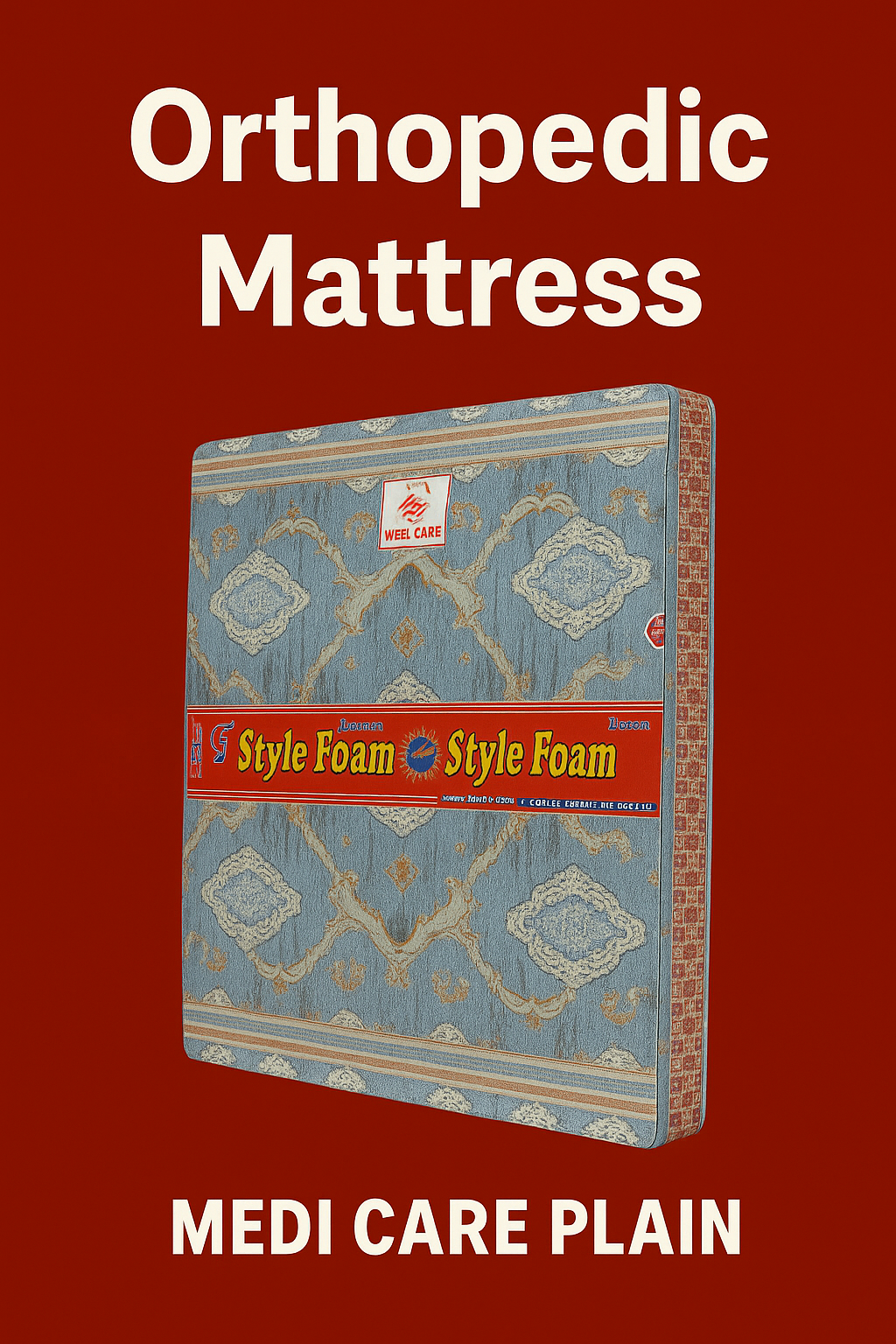In today's fast-paced world, quality sleep has become a luxury many can’t afford. While stress and screen time often take the blame, one of the most overlooked factors affecting sleep is your mattress. If you often wake up with aches and pains or struggle to get a restful night’s sleep, it might be time to consider switching to an orthopedic mattress.
Orthopedic mattresses are specially designed to support your joints, back, and overall body alignment. But what exactly are they, and how can they transform your sleep and health? Let’s dive deep into everything you need to know about orthopedic mattresses.
What Is an Orthopedic Mattress?
An orthopedic mattress is a type of mattress that provides optimal support to the bones and joints. It’s engineered to maintain proper spinal alignment and distribute body weight evenly. This type of mattress is often recommended by medical professionals for people suffering from back pain, arthritis, scoliosis, and other musculoskeletal conditions.
Unlike traditional mattresses that may sink under your weight, orthopedic mattresses are made using high-density foam, memory foam, latex, or pocket springs, offering a firm yet comfortable sleeping surface.
Benefits of an Orthopedic Mattress
1. Spinal Alignment
One of the most significant advantages of using an orthopedic mattress is its ability to keep your spine aligned. Poor sleeping posture can lead to chronic back problems, neck pain, and even migraines. An orthopedic mattress contours to your body shape while maintaining a neutral position for your spine.
2. Pain Relief
Whether it’s chronic back pain, neck stiffness, or joint discomfort, orthopedic mattresses are built to reduce pressure on sensitive areas. By distributing your body weight evenly, it minimizes stress on pressure points such as hips, shoulders, and knees.
3. Better Sleep Quality
Pain and discomfort are among the leading causes of poor sleep. With the firm support of an orthopedic mattress, you’re less likely to toss and turn at night. This leads to deeper, more restorative sleep cycles and a more refreshed feeling in the morning.
4. Durability
Orthopedic mattresses are constructed with high-quality materials designed to last longer than conventional mattresses. Their firmness ensures that the mattress doesn’t sag or lose shape over time, making it a cost-effective investment in the long run.
5. Prevention of Future Problems
Even if you don’t currently suffer from any back or joint issues, using an orthopedic mattress can help prevent problems later in life. It encourages good sleeping posture and provides consistent support, reducing the risk of developing posture-related issues.
Who Should Use an Orthopedic Mattress?
While an orthopedic mattress can benefit nearly everyone, it’s particularly useful for:
-
People with chronic back or neck pain
-
Senior citizens
-
Athletes and physically active individuals
-
Office workers with sedentary lifestyles
-
People recovering from surgery or injury
-
Pregnant women in need of extra lumbar support
Even if you fall outside these categories, the ergonomic support an orthopedic mattress provides can be a great preventive measure for long-term spinal health.
How to Choose the Right Orthopedic Mattress
Not all orthopedic mattresses are created equal. Here are some key factors to consider when shopping for one:
1. Firmness Level
Orthopedic mattresses are generally firmer than regular mattresses. However, the ideal firmness depends on your body weight, sleep position, and personal preference. Side sleepers may need a medium-firm mattress, while back and stomach sleepers may prefer something firmer.
2. Material
-
Memory Foam: Contours to your body and provides excellent pressure relief.
-
Latex: Natural, hypoallergenic, and offers responsive support.
-
Spring/Coil: Traditional feel with firm support; some models offer hybrid options.
-
High-Density Foam: Durable and supportive, ideal for those needing extra firmness.
3. Trial Period & Warranty
Look for brands that offer a trial period so you can test the mattress before fully committing. A good orthopedic mattress should come with a warranty of at least 10 years.
4. Certifications
Ensure the mattress materials are certified for safety and quality. Look for certifications like CertiPUR-US® or OEKO-TEX®.
Orthopedic Mattress vs. Regular Mattress
| Feature | Orthopedic Mattress | Regular Mattress |
|---|---|---|
| Support | High – tailored to joints and spine | Moderate – general support |
| Firmness | Medium-firm to firm | Varies (soft, medium, firm) |
| Pain Relief | Excellent | Inconsistent |
| Lifespan | Long-lasting | Depends on material |
| Target Audience | Health-conscious consumers, people with back issues | General public |
Common Myths About Orthopedic Mattresses
Myth 1: Orthopedic mattresses are too hard to sleep on.
While they are firmer than typical mattresses, they are designed to be supportive and comfortable. Many modern orthopedic mattresses incorporate memory foam or latex for added cushioning.
Myth 2: Only elderly people need orthopedic mattresses.
Back and joint issues can affect people of all ages. Young professionals with sedentary jobs or fitness enthusiasts can greatly benefit from the added support.
Myth 3: All firm mattresses are orthopedic.
Firmness alone does not define an orthopedic mattress. It’s the structure, design, and materials used to promote proper alignment that make the difference.
Final Thoughts: Is an Orthopedic Mattress Worth It?
Absolutely. Investing in an orthopedic mattress is not just about improving sleep—it’s about enhancing your overall quality of life. Proper sleep leads to better mental health, increased productivity, and a stronger immune system. If you're experiencing any discomfort while sleeping or waking up sore, switching to an orthopedic mattress could be the best health decision you make this year.
Bonus Tip: How to Extend the Life of Your Orthopedic Mattress
-
Rotate it every 3–6 months
-
Use a quality mattress protector
-
Keep it clean and vacuum it regularly
-
Avoid jumping or placing heavy objects on it












